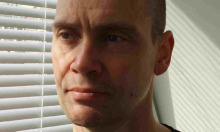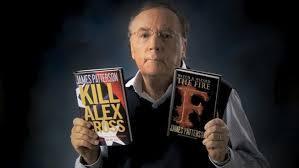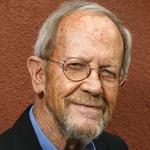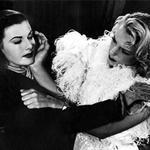Matt Rees's Blog - Posts Tagged "james-patterson"
Euro Bestsellers, UK-US Blockbusters
 Crime novelist Simon Beckett wrote a few days ago in The Guardian that he’d had no idea he was the best-selling British novelist in Europe until statistics were announced last month. Not surprising, because at home no one has a clue who he is.
Crime novelist Simon Beckett wrote a few days ago in The Guardian that he’d had no idea he was the best-selling British novelist in Europe until statistics were announced last month. Not surprising, because at home no one has a clue who he is.The n author of a series about a forensic anthropologist (hard to define, but it involves a lot of descriptions of decomposing bodies in gruesome detail, which’re rather well done) recounts his astonishment that he plays to big crowds, in particular in Germany.
I can vouch for this. I saw him in Hamburg at a festival at which I also appeared last year. He read before a crowd that filled a hall the size of an aircraft hangar and which treated him as if he were Brad Pitt. I was quite surprised by the women rushing his signing table. I'm not German -- I hadn't the foggiest notion who this fellow was.
Meanwhile, at home in Sheffield, Yorkshire, acquaintances approach Beckett wondering if he can make a living from writing, unaware that he’s sold millions of books. Unaware, because hardly any of them are sold in the UK.
Beckett’s article highlights a phenomenon among writers – not just in the crime genre. I come across quite a few novelists from the UK and the US who’re best sellers in European countries, but can’t get more than a handful to turn up for readings in their home countries. I think there’s more to this than differences in national reading tastes.
Though Beckett claims to be bemused by his situation, I think it can be explained by the differences in the ways books are sold in the US/UK and in Europe. American and British bookshops (and publishers) see their business as being carried by a few blockbuster books. A New York Times Magazine profile of James Patterson by Jonathan Mahler last month highlighted this trend and the effect it has on other non-blockbuster books. Anyone not on the blockbuster trajectory can find it hard to set up readings in stores and almost impossible to get journalists (tv, radio or print) to do interviews.
When I’ve traveled in Europe, however, I find myself touring smallish bookshops which consider it a necessary part of their business to host writers. Then there's a broad array of literary festivals, too. In each city, there’s a wide range of media ready to do interviews, even with first-time authors. Consequently a book not of the blockbuster type can attract publicity which – in the US and UK – would rarely be given to anything but a blockbuster author whose name you (and the journalist concerned) already heard a thousand times.
I suspect this won’t change soon. Why not?
For one thing, booksellers are more conservative in their ordering than ever. Largely due to the economic crisis – which resulted in Barnes and Noble having a dreadful 2009 – and insecurity about the future of publishing in an e-book age, big stores are ordering ahead only for one month at a time, rather than the three months or more publishers are accustomed to. That makes it hard for publishers to plan a big print run for all but the sure things.
As if things weren’t bad enough in publishing, the situation is compounded by worries in the journalism world. It’s hard for a journalist to take a stand against market trends these days. I’m a former journalist and I can state categorically that if there’s one group of people with more qualms about what the future holds for their industry than publishers, it’s journalists.
So how to get around this? Well, if you're a reader, why not follow the German bestseller lists? Here's one which recommends the best new crime novels each month. You'll find a broader range of reading and books which might surprise you. You'll also be ahead of the sales figures back home and be able to get a front row seat at the scantily attended readings of the next Simon Beckett.
Published on February 13, 2010 10:05
•
Tags:
bestsellers, blockbusters, bookshops, crime-fiction, david-hunter, germany, hamburg, james-patterson, jonathan-mahler, new-york-times-magazine, publishing, simon-beckett, the-guardian
Writing crime fiction: You need a daily routine for your writing
Crime writers need to work every day at the same time

Writing doesn't begin at the moment you set finger to keyboard. It starts...when it starts. To write a crime novel you need to have a routine and stick to it. That means working at the same time every day.
Part of writer's block is the feeling that you could be doing something else right now. If you don't insist on writing every work day, you'll be blocked because your insecurities will push you to do something else. If you don't write at the same time every day, your insecurities will suggest a trip to the coffee shop or a tv show on the basis that you'll find time to write later.
But you shouldn't be, and you won't. The great French novelist Flaubert said, "Be regular and orderly in life, so as to be violent and original in your work."
Whenever you hear a top crime writer talk, someone always asks them about their routine. None of them ever say, I write when I feel inspired.
James Patterson tells us he gets up at 5.30 a.m. to work. (I get up at 5.30, but that's because my two-year-old daughter is demanding pancakes.)
David Liss used to start work at 4 a.m. He happened to be writing two books at the time.
Most writers get going by 9 a.m. and roll until early afternoon. Elmore Leonard used to keep himself hungry by eating a handful of nuts for lunch and writing until 6 p.m.
Certainly the morning seems to be the most popular and productive time for writers. The only writer who seems to choose the evening is George Pelecanos. Zip through this video to 23.35 to hear him talk about this:
Michael Connolly wrote his first novel at night, because he was a newspaper reporter by day and had made a deal with his wife that they wouldn't go out four nights a week so he could write.
Larry McMurtry said that a writer should work every day to maintain momentum. He added that you should stop before you felt played out and exhausted, so that you'd have the energy and appetite to get back at it the next day.
For me, the routine begins every day after I've taken my son to school. By about 8 a.m. I'm working. I keep at it until somewhere between 11 and 2. The end of the day depends on the stage of the novel. If I'm spewing out the first draft, I'll keep going because I'm desperate to get everything down. Once I'm refining the manuscript, I finish a little earlier in the day, because close-reading is relatively exhausting.
But the start of the day is not negotiable for me. It should be that way for you too.
Related articles across the web
 Literary crime fiction
Literary crime fiction
 Elmore Leonard, crime novelist, dies
Elmore Leonard, crime novelist, dies
 Music to murder to: crime writers on their killer soundtracks
Music to murder to: crime writers on their killer soundtracks

Writing doesn't begin at the moment you set finger to keyboard. It starts...when it starts. To write a crime novel you need to have a routine and stick to it. That means working at the same time every day.
Part of writer's block is the feeling that you could be doing something else right now. If you don't insist on writing every work day, you'll be blocked because your insecurities will push you to do something else. If you don't write at the same time every day, your insecurities will suggest a trip to the coffee shop or a tv show on the basis that you'll find time to write later.
But you shouldn't be, and you won't. The great French novelist Flaubert said, "Be regular and orderly in life, so as to be violent and original in your work."
Whenever you hear a top crime writer talk, someone always asks them about their routine. None of them ever say, I write when I feel inspired.
James Patterson tells us he gets up at 5.30 a.m. to work. (I get up at 5.30, but that's because my two-year-old daughter is demanding pancakes.)
David Liss used to start work at 4 a.m. He happened to be writing two books at the time.
Most writers get going by 9 a.m. and roll until early afternoon. Elmore Leonard used to keep himself hungry by eating a handful of nuts for lunch and writing until 6 p.m.
Certainly the morning seems to be the most popular and productive time for writers. The only writer who seems to choose the evening is George Pelecanos. Zip through this video to 23.35 to hear him talk about this:
Michael Connolly wrote his first novel at night, because he was a newspaper reporter by day and had made a deal with his wife that they wouldn't go out four nights a week so he could write.
Larry McMurtry said that a writer should work every day to maintain momentum. He added that you should stop before you felt played out and exhausted, so that you'd have the energy and appetite to get back at it the next day.
For me, the routine begins every day after I've taken my son to school. By about 8 a.m. I'm working. I keep at it until somewhere between 11 and 2. The end of the day depends on the stage of the novel. If I'm spewing out the first draft, I'll keep going because I'm desperate to get everything down. Once I'm refining the manuscript, I finish a little earlier in the day, because close-reading is relatively exhausting.
But the start of the day is not negotiable for me. It should be that way for you too.
Related articles across the web
 Literary crime fiction
Literary crime fiction  Elmore Leonard, crime novelist, dies
Elmore Leonard, crime novelist, dies  Music to murder to: crime writers on their killer soundtracks
Music to murder to: crime writers on their killer soundtracks
Published on February 12, 2014 04:14
•
Tags:
crime-fiction, elmore-leonard, george-pelecanos, james-patterson, thrillers, writing, writing-routines, writing-tips



